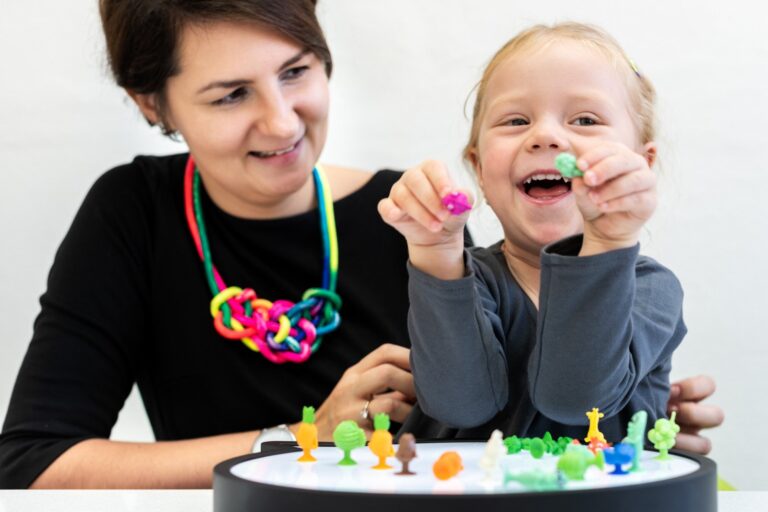Drive Lasting Progress and Confidence in Children
Whether your child is receiving physical, occupational, or speech therapy, regular attendance impacts their progress. Therapy isn’t a one-time fix, but a structured process designed to help children overcome developmental challenges and build lifelong skills.
Inconsistent sessions can stall that progress, interrupt learning, and make it harder for kids to reach important milestones. On the other hand, a consistent therapy schedule helps reinforce development, encourages emotional trust, and accelerates skill mastery.
Read on to understand why consistency is so important for children in pediatric therapy.
1. Repetition Builds Neural Pathways
The human brain is incredibly adaptive, especially in children. It forms connections called neural pathways based on experiences and repetition. For kids with developmental or neurological differences, these pathways often take more time and effort to develop.
Therapy sessions are designed to provide deliberate, targeted repetition of specific movements, behaviors, or communication strategies. A child learning to speak might practice sound production, word association, and oral motor skills repeatedly. Similarly, a child with sensory challenges may work on regulating their responses to certain stimuli over and over.
The more frequently these experiences are repeated in a structured setting, the stronger and more efficient those neural pathways become. Consistency turns effort into habit, and habit into skill.
2. The Brain Learns Best Through Routine
Think about how most of us function best with some form of routine—waking up at the same time, having our coffee, following our daily schedule. For children, especially those in therapy, routine is critical.
When therapy is integrated into a child’s weekly schedule, it becomes something expected and familiar. This predictability creates a sense of security that allows the child to focus better and engage more fully. On the other hand, missed or irregular appointments can throw off their rhythm, leading to anxiety, resistance, or decreased engagement.
Routine also aids in memory retention. When a skill is practiced routinely, the child’s brain is more likely to store it in long-term memory and apply it in different settings like at home, in school, or during play.
3. Skill Mastery Requires Ongoing Practice
It’s easy to assume that once a child demonstrates a new skill, like stacking blocks or saying a new word, they’ve “got it.” But progress in therapy isn’t about isolated successes; it’s about mastery, which requires repeated and refined practice.
Let’s say a child is working on using a walker. Mastery means they can do it confidently, safely, and independently—not just once, but consistently across different environments. This level of competence is achieved only through progressive, adaptive practice over time.
A consistent therapy schedule allows for:
- Continuous feedback from the therapist
- Adjustment of goals and strategies
- Gradual introduction of new challenges
- Reinforcement of previously learned skills
Without this rhythm, progress may plateau, or worse, regress.
4. Trust and Relationship-Building Take Time
For a child, especially one facing communication or emotional regulation challenges, building a trusting relationship with their therapist is essential. Trust creates a safe environment where the child feels confident enough to try difficult tasks, express frustration, and celebrate small victories.
Regular sessions give the therapist time to build rapport with your child, learning their preferences, triggers, and motivators. This connection becomes the foundation for progress.
But when therapy is inconsistent, that bond is disrupted. Your child may need to “warm up” all over again, wasting valuable time and emotional energy. Consistency helps drive connection and support success in pediatric therapy.
5. Keeping Up The Momentum
Pediatric therapy isn’t a sprint, it’s a marathon. And like any training program, momentum plays a big role in maintaining progress. Skipping sessions can lead to:
- Lost progress on recent gains
- Increased frustration for the child and parent
- Difficulty picking up where they left off
- Extended timelines to reach milestones
This is especially concerning during critical developmental windows. The first few years of life are a prime time for brain development. The earlier and more consistent the intervention, the greater the long-term benefits. Every missed session is a missed opportunity for growth.
6. Home Practice Is Stronger with Professional Support
Therapy doesn’t end when the session ends. In many cases, therapists provide home exercises, activities, or tools for families to use in between visits. These might include practicing speech sounds during mealtime, strengthening exercises during play, or sensory integration strategies during bath time.
But for these efforts to be effective, they need to be tailored and updated regularly based on your child’s current abilities and goals. Regular therapy sessions ensure that the home plan evolves with your child’s progress and that parents receive real-time guidance and reassurance.
Consistency in pediatric therapy means more consistent and meaningful home practice, where the real-life magic happens.
7. Consistency Builds Confidence
Children aren’t the only ones who benefit from regular therapy. Parents and caregivers gain confidence, too. By observing sessions, asking questions, and seeing results over time, families feel more empowered and equipped to support their child outside of therapy.
It also builds a sense of hope. Small victories, witnessed regularly, reinforce the belief that progress is happening and goals are achievable. That emotional reinforcement is powerful, especially during times when the road feels long.
For the child, the routine of attending therapy and seeing familiar faces helps build self-esteem. They know what to expect, they feel seen and understood, and they’re celebrated for their efforts. That’s a foundation for a resilient, motivated learner.
What to Do If You’re Struggling with Consistency
We understand—life happens. Between work, school, illness, transportation, and other responsibilities, maintaining a rigid therapy schedule can sometimes feel impossible. But don’t let that discourage you.
If you’re facing barriers, reach out to your pediatric therapy team. At Crawl Walk Jump Run Therapy Clinic, we’re here to support you with:
- Flexible scheduling options
- Telehealth or hybrid sessions (where appropriate)
- Tools to help with appointment reminders
- Ideas for incorporating therapy into everyday routines
We want to work with you to find a sustainable path forward.
Every child’s developmental journey is uniquely beautiful. While there may be ups and downs, one of the most powerful tools in your toolbox is showing up consistently. Whether your child is learning to express their needs, develop motor skills, or overcome sensory sensitivities, regular therapy builds the momentum they need to thrive.
Have questions or need help with your child’s therapy schedule? Contact us today. We’re here to help.




